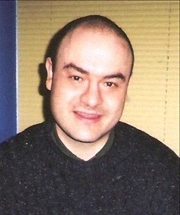Tutor HuntResources Philosophy Resources
Kierkegaard And Romantic Aesthetics, Part Ii
continuation
Date : 30/09/2013
Author Information

Uploaded by : Daniel
Uploaded on : 30/09/2013
Subject : Philosophy
In the Musical Erotic, we have seen that Kierkegaard opposes the claims advanced by theorists (from Wackenroder and Schopenhauer to Wagner and the early Nietzsche) for a romantic conception of music as revelatory of the ground of reality itself. Kierkegaard writes: `I have never had any sympathy...for that purified music which thinks it can do without words`. What `believes itself the highest`, is merely the lowest reflection of sensuous immediacy. Yet Kierkegaard`s entire project of Socratic irony is aimed at an `aesthetically oriented` reader - one who lives outside himself, in arbitrary objectifications of his own being. Kierkegaard`s maieutic strategy attempts, indirectly, to enable such a subject to truly see himself for the first time, and thereby, to open up to divine truth as a personal possibility. This project depends crucially on Kierkegaard`s own `musically indirect`, and often poetically charged aesthetic creativity, which is set to work throughout Kierkegaard`s authorship in response to what he himself perceived as a divine vocation. This vocation could only be fulfilled, however, by invoking to the full his considerable powers of artistic insight and creativity. I propose that Kierkegaard`s withholding of a possible religious significance to creative art and its appreciation is belied by the very nature of his own artistically and theologically powerful work. The theological project of an indirect communication of paradoxical truth could not have come about without the artistry through which Kierkegaard expresses it.
For Kierkegaard, aesthetic activity can be redeemed only within the subject`s imaginative relation to revealed truth. But Kierkegaard will not allow that purely artistic, aesthetic activity can be a means at least of intimating the true freedom that is of course only fully revealed in Christ. And yet if the flesh is still not redeemed, if, simply as flesh, as the sensuous immediacy of living, created drives and even, by extension, cosmic energies, it remains in an external relation to the Law, then Kierkegaard`s paradox is not as radical as he suggests. In this case, the trans-subjective actuality of the paradoxical revelation - which need not imply a reified objectivity - is again restricted to subjective ideality, albeit in terms of an `existential` experience that is more holistically conceived than Hegelian dialectical thought.
I am currently researching the nature of time and imagination as core conditions of human experience for Kant and subsequent writers, in search of a reconciliation between Kierkegaardian faith and romantic, artistic expressivism.
This resource was uploaded by: Daniel
Other articles by this author
- The theological problem of Coleridge`s ethico-epistemology
- Kierkegaardian Faith and Romantic Aesthetics
- Kantian Imagination: a new approach
- The Being of Beings or the Music of Paradox? Kierkegaard`s aesthetic of inwardness
- Aquinas`s account of the naming of God
- The theological significance of Heidegger`s later philosophy
- The Christological teaching of the council of Chalcedon, A.D. 451
- Christology essay part II
- Heidegger essay, part II
- Kantian imagination, Part II
- Coleridgean ethico-epistemology part II
- Kierkegaard part II
- 1914: Christendom at the Cross
